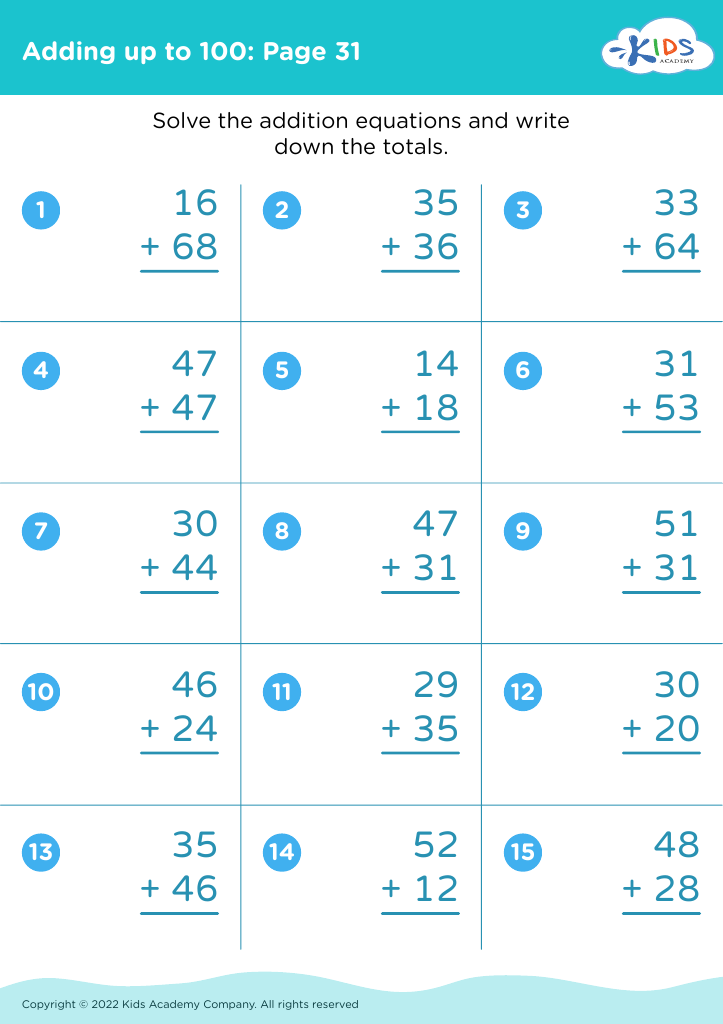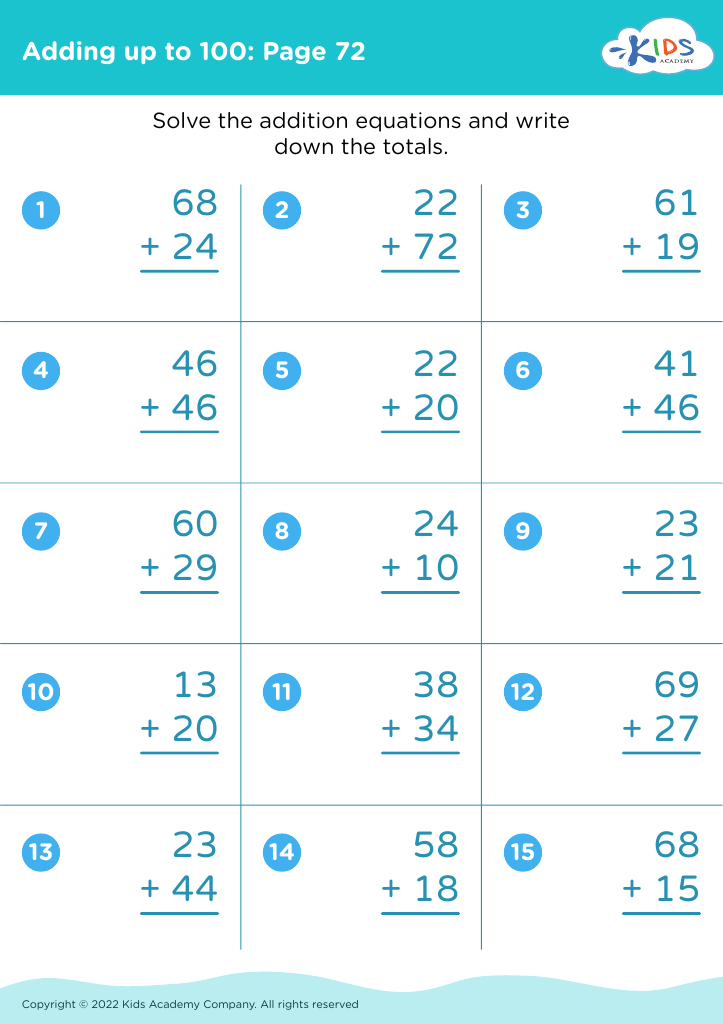Develop number recognition Adding up to 100 Worksheets for Ages 4-7
4 filtered results
-
From - To
Discover our "Develop Number Recognition: Adding Up to 100 Worksheets" designed for children ages 4-7! These engaging worksheets make learning fun, helping young learners recognize numbers and improve their counting skills. With vibrant illustrations and interactive exercises, children will enjoy identifying numbers while mastering basic addition up to 100. Perfect for enhancing foundational math skills, our resources can complement classroom learning or be used at home. Encourage your child's confidence in math with these easy-to-follow worksheets, promoting number recognition and curiosity. Start their journey to becoming math whizzes today! Download and watch your little ones thrive in their mathematical adventures!
Developing number recognition and the ability to add up to 100 is essential for children aged 4-7 as it lays the foundation for their mathematical understanding. Number recognition is more than just identifying numbers; it strengthens cognitive skills such as memory, attention, and problem-solving. When children can recognize numbers and understand their value, they become more confident in their ability to engage with mathematical concepts.
Learning to add numbers up to 100 introduces basic arithmetic operations that are pivotal in everyday life. From education to practical activities like shopping or cooking, the ability to perform simple addition is vital. Early familiarity with numbers promotes positive attitudes toward mathematics and reduces anxiety associated with the subject later on.
Parents and teachers play a crucial role in this development by providing engaging activities, such as games, stories, and manipulatives that make learning enjoyable. Encouraging counting, simple calculations, and using numbers in daily situations can enhance children’s understanding. When adults show enthusiasm about math, children are more likely to mirror that interest, fostering a lifelong love for learning. Ultimately, investing in early math skills ensures that children are better prepared for future academic challenges and real-world applications.







%20(1).jpg)









